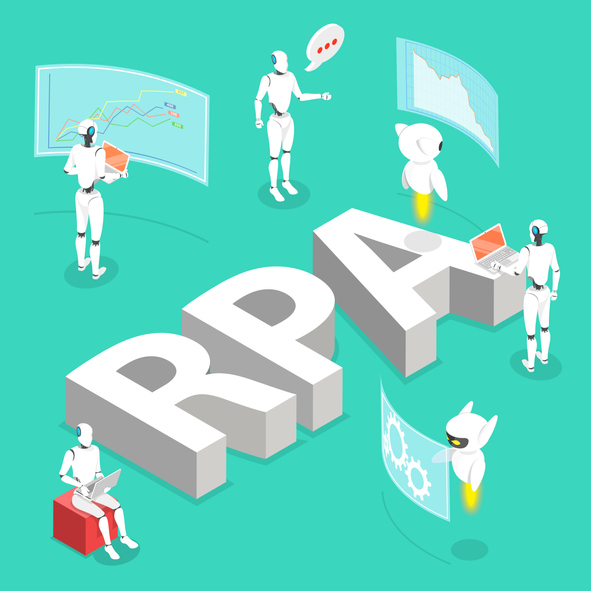Introducing robotic process automation into people management
- HRM Asia Newsroom

Robotic Process Automation (RPA) is becoming one of the hottest tech trends in recent years. From banking to insurance, more and more industries are reaping the benefits of introducing RPA to their operations as it offers a high return on investment and the opportunity to rapidly automate manual processes.
Automation is especially crucial for insurance companies – as one of the world’s oldest trades – which are on the cusp of streamlining traditional processes to compete against new players starting on simpler platforms, unburdened by legacy systems.
For the uninitiated, RPA is also known as virtual bots. The RPA bot can be designed to replicate human actions and fulfil repetitive tasks such as data entry and matching of information.
The technology can be integrated easily with existing technology infrastructure without the need to modify underlying codes, thus making it economical and easy to implement.
On top of being cost-effective and scalable, RPA brings substantial benefits to staff engagement. The bots take over the manual and dreary tasks, and free up employees’ time to handle more value-adding activities, hence enriching their jobs and skills.
Delivering transformative results
At MSIG, we have made phenomenal breakthroughs since we introduced RPA bots to automate the claims and policy servicing processes.
Zac and Velma, our first two RPA bots, have dramatically cut down the time we spent previously on claims registration and motor fleet policy processing by about 70% and 80% respectively. Mistakes have been reduced to zero as bots are not susceptible to fatigue and errors.
With the success of Zac and Velma, we have added a few more bots and are currently scaling up on more RPA processes to continuously improve productivity and bring down operating costs.
Developing staff potential
| “RPAcan be integrated easily with existing technology infrastructure without the need to modify underlying codes, thus making it economical and easy to implement. |
More importantly, the benefits of RPA extend beyond optimising operations. While the process of automation can sound like an impersonal replacement of jobs, experts in the field say that RPA can in fact help employees become less ‘robotic’ and more engaged at work.
Multiple studies have also pointed to an inverse relationship between the volume of monotonous tasks and employees’ well-being, performance and motivation.
Indeed, we have seen higher job satisfaction reported from our staff as they are able to better align their efforts with the company’s customer centric ambitions. Rather than fearing increased automation at work, our staff are happy to hand off the repetitive tasks to the tireless bots.
Monotonous tasks are replaced with more stimulating and varied work that cannot be handled by bots, such as complex claims case studies, engaging with customers on their claims, and policy documentation requiring underwriting analysis.
I believe, in time to come, employees will expect more bots and smart machines to augment their work. Technologies will become a significant factor in attracting and retaining the best people and companies will need to complement their staff’s work with the right technology for them to deliver the best-in-class customer experience and, to develop their skills and careers.
Future-proof through skills upgrading
As MSIG progresses in its digitalisation, our key mantra is to “bring everyone along” on the journey. To fulfil this commitment, we proactively look at what jobs and skills need to be transformed, and provide learning and development interventions for our employees to continually grow their skills and stay relevant.
For example, we have introduced programmes on agile and design thinking to train our employees to adopt a more innovative mindset and become more performance-driven as we transition into a digital-first workforce.
We also regularly provide our staff exposure to digital technologies involving artificial intelligence and virtual reality, through workshops and courses, to allow them to gain a better understanding of digital technologies that now underpin work, home and play.
And to further encourage staff to embrace lifelong learning, we have recently launched a co-funding scheme where our staff are given subsidies to take up non-work related courses listed on the SkillsFuture portal.
As new technologies are being deployed, the nature of work will radically change. The digital workforce revolution is upon us and the question is no longer if but when and how businesses can best prepare their people for this new wave of automation.
It is important that companies design their digital transformation efforts, including RPA initiatives, with the benefits of stakeholders in mind.
The application of smart technologies should ultimately translate into tangible benefits for customers and  employees, helping business leaders to develop their human capital to the fullest potential.
employees, helping business leaders to develop their human capital to the fullest potential.






